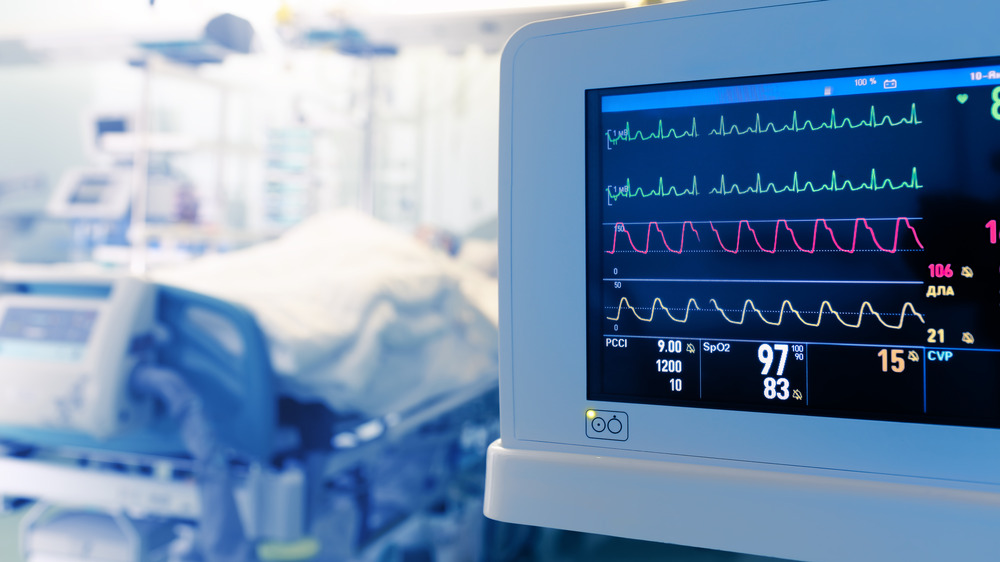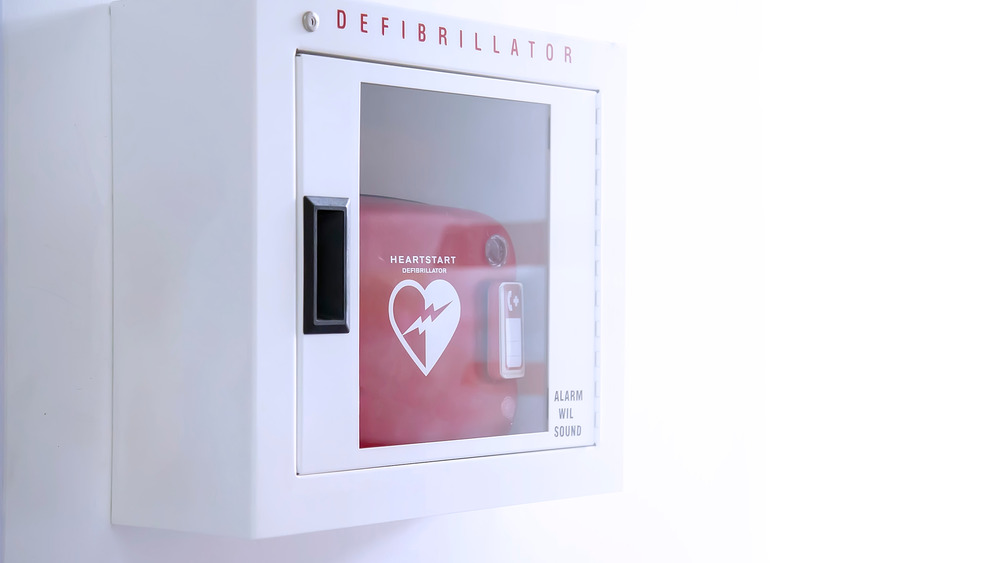Why Your Heart May Restart Itself After You Die
It's easy to think of life and death as a binary, but it turns out that like a lot of supposed binaries, the concepts of "life" and "death" aren't always well-defined and able to be categorized, even in healthcare. Take Lazarus syndrome. Per Healthline, this rare medical phenomenon is named for the character in the New Testament who emerged from his tomb alive and well after four days. In a Lazarus syndrome situation, the patient's heart has stopped beating despite attempts to restart it via CPR, and the patient appears dead. However, blood circulation restarts spontaneously, seeming to bring the patient back to life. Lazarus syndrome, also known as autoresuscitation, is extremely rare; one report from 2015 found just 32 cases between 1982 and 2008.
In cases of Lazarus syndrome, circulation spontaneously returned within 10 minutes of stopping CPR. Healthline recommends waiting 10 minutes after CPR is declared unsuccessful to declare a patient dead, and keeping a heart monitor attached to the person during those 10 minutes. Death isn't usually an instantaneous process; a person isn't officially dead "until the function of all [their] organs, including [the] brain, irreversibly stop."
Despite the apparent rarity of Lazarus syndrome, there have been a few high profile examples of the phenomenon that have made the news. In 2014, CNN reported on the case of 78-year-old Walter Williams, who was declared dead by a hospice nurse on Wednesday, April 28.
Lazarus syndrome: medical miracle?
After receiving calls from the nurse and well as Williams' family, coroner Dexter Howard went to Williams' home with Byron Porter from Porter & Sons Funeral Home in Lexington, Mississippi. He checked Williams' pulse and pronounced him dead, per CNN. They placed him in a body bag and transported him to the funeral home and placed him in the embalming room. Suddenly, the body bag moved. Howard noted that his legs started kicking and Williams began breathing on his own. They immediately called an ambulance; paramedics found a heartbeat and transported him to the hospital. Howard theorized that Williams' internal defibrillator may have "jump started" his heart after he was placed in the body bag.
ABC News reported on a 2013 case in which 37-year-old Anthony Yahle was declared dead at Kettering Medical Center in Ohio after a heart attack. He had been revived at home via CPR and external defibrillation, and when he was checked at the hospital, his arteries were clear. Nevertheless, his heart stopped again later that day and after "coding" for 45 minutes and receiving "all the medicine [the doctors] had in [their] code cart," they declared him dead. Upon hearing of his father's death, Yahle's son Lawrence ran down the hall to his father's room and yelled, "Dad, you're not going to die today!" Shortly thereafter, doctors noticed a "trickle" of Anthony Yahle's heartbeat and revived him. After astounding doctors, Yahle went home days later with an internal defibrillator in his chest.

